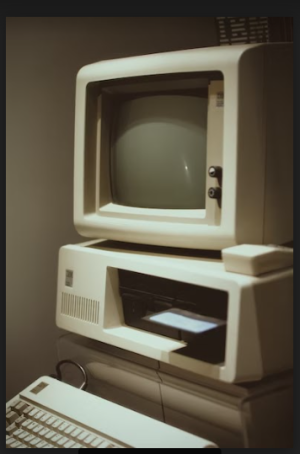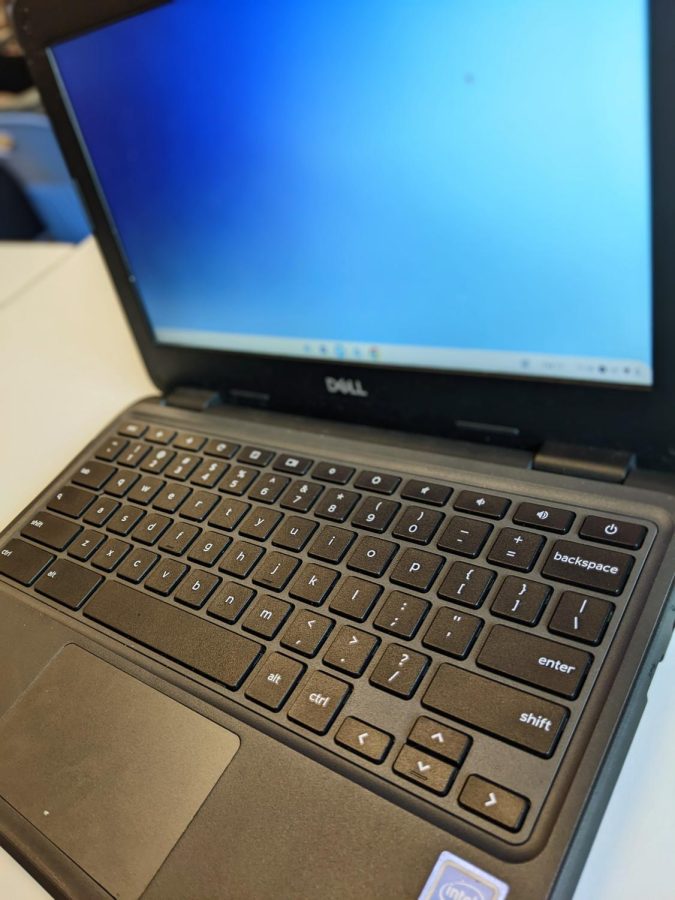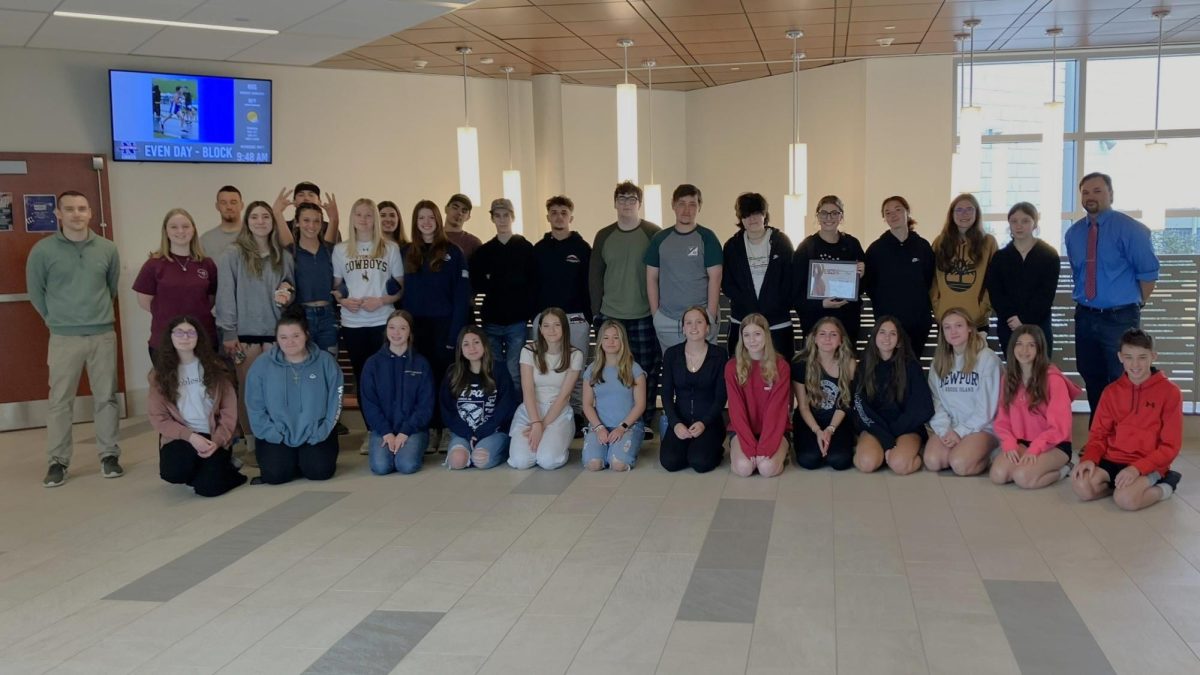Root: School Chromebooks are ‘Lacking’
The Chromebooks students are issued often fail to keep up with the demands of a 21st century classroom.
February 24, 2023
WOODBURY — The Chromebooks loaned to students at Nonnewaug High School are nothing short of fantastic — at being incredibly slow, that is.
From lagging behind when more than five tabs are open, to failing to load tabs in general, the school-issued Chromebooks are impractical for what students actually need.
Chromebooks even sometimes become a liability in the classroom because of the slow speeds that cause students to fall behind. It’s demoralizing trying to complete classwork or even keep up with the class when you have to wait painstakingly for the Chromebook. It makes many students not even want to bother. The school-issued technology leaves lots of students wondering if this is truly the best the school can offer.
“I was trying to use my Chromebook and the mousepad stopped working, and I had to completely restart it,” says Chris Koemp, a senior at Nonnewaug. “I don’t use my Chromebook anymore because it’s just worse compared to the old laptop I have.”

Students going to college may also be expected to be proficient in programs that the current school Chromebooks simply can’t offer. Students going into computer arts and engineering can’t run programs like CAD, Blender, Adobe Photoshop, and Illustrator on the school Chromebooks. This is because these programs require a graphics card or some alternative to that in which the Chromebooks do not have.
“I’m taking accounting this year, and in the class we use school-owned PCs,” said Niko Tsamos, Nonnewaug senior. “I couldn’t imagine trying to learn accounting on the school’s Chromebooks because of all the tabs we have to keep open.”
The current Chromebooks the students are loaned are Chromebook 3100. These have four gigabytes of RAM and 32 gigabytes of storage. The processor inside the computer is an Intel Celeron N4020. Compared to a lot of competing current laptops and Chromebooks, this seems almost prehistoric as usually the baseline for these computers for RAM is eight gigabytes for a functional and smooth experience.
The Google Chrome web browser is also very demanding on the computer compared to other web browsers. This is because Google is known to take up more memory (RAM) in your computer, leaving it with less programs and tabs able to be open without slowing down.
There are better alternatives than what the school offers. Not only that, but it’s possible to just get an upgraded version of the current Chromebook with eight gigabytes of RAM.
It would be well worth it to get an upgrade. It will benefit the students and the teachers as working online would be less of a hassle and it would open up more opportunities for teachers to teach in more creative ways.
It would definitely be great to get an upgrade, but the cost of better laptops might be something the school simply can’t offer. Is there a way to get better laptops without spending as much money?
“No,” said Region 14 technology coordinator Phil Pagano. “The whole laptop business is too cost [prohibitive] when it comes to computers.”
Translation: You have to pay the price to get something better.
“The average cost of a laptop with eight gigabytes of RAM is $500-$1,200 when it’s not on sale,” Pagano said.
Assuming the Chromebooks the school is offering is the best they can provide, then an upgrade even $50 dollars more is not financially feasible. The price adds up greatly when you have to account for more than 700 students.
Medium- to high-end laptops are very expensive, and Nonnewaug is a public school. So despite the Chromebooks being a slight inconvenience at times, there is not a whole lot that can be done. For now, students will have to sit idly by while their technology chugs along, one gigabyte at a time.
This is the opinion of Chief Advocate reporter Brian Root.



















